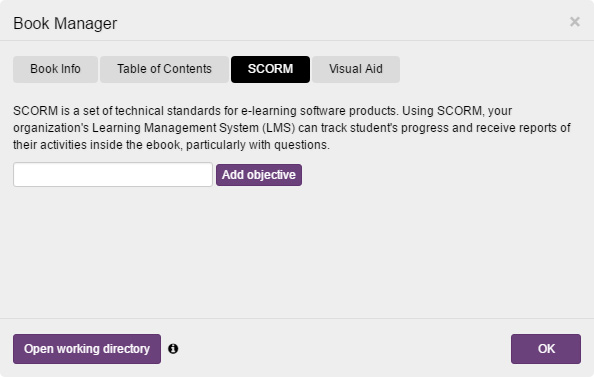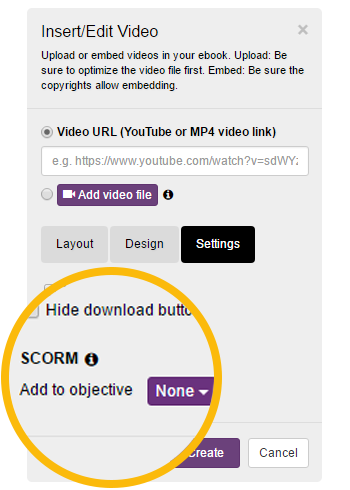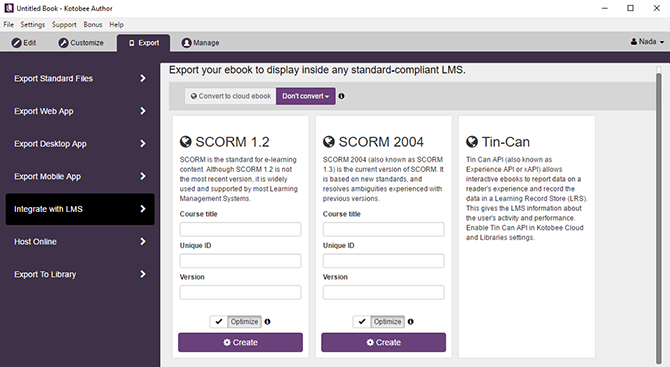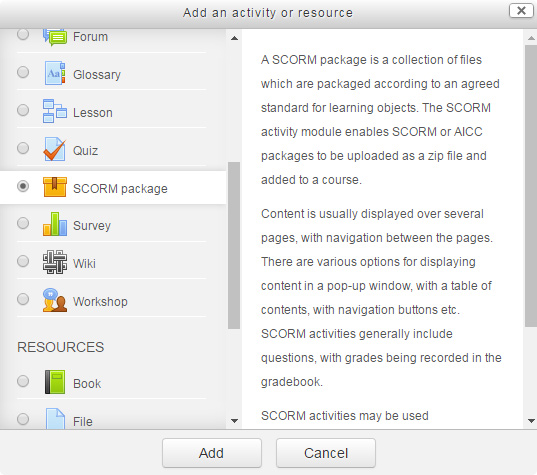Moodle Analytics: Get More Out of Your Course and LMS
Most educators use Moodle without exploring or even less so, reaping all the benefits of this powerhouse system. Teachers’ main reason for using Moodle is usually that it’s the Learning Management System (LMS) selected by their institution. If you’re not using Moodle’s built-in tracking methods, analytics or integrating your course materials as a SCORM package, then you’re missing out.
We’ll share with you how integrating Moodle with your course materials can help you get the most out of both your course materials and Moodle. We’ll cover the reports you can generate to track student progress, and the more advanced Moodle Analytics available.
Moodle
If you’re in the education sector, then chances are you’ve not only heard of, but also, used Moodle at some point. But on the off chance you haven’t used it yet, here’s what Moodle is as per its website:
“Moodle is a learning platform designed to provide educators, administrators and learners with a single robust, secure and integrated system to create personalized learning environments.”
In Moodle, you’re not only able to create a custom virtual learning environment for seamless assignments and communications. Moodle encompasses tracking student performance, analysis of course progress with respect to its objectives, and even some data-based insights and predictions of your student data within Moodle. As such, data in Moodle helps you to ensure that your students’ performance and progress is on track and that your course is helping your students achieve the skills you set out for them.
Course Materials
As magical as predictions sound, where this really gets interesting is when you can use all the aforementioned data tools and predictions to also track your students as they go through the course materials that you’ve gathered for them in an ebook or ebook library.
Nearly all teachers spend a good amount of time creating supplemental materials for their students, so that students may better understand, and assimilate the course topics and competencies. When the materials are collected into an ebook, not only do you save your efforts from being eaten by the proverbial dog, but you also save yourself time and improve the quality of education for your students. You’ll see how shortly.
Naturally, you want to make sure that your students are watching the videos you’ve selected, and answering the sample exercises you crafted. If you can record their progress in the various activities you’ve created, and have their answers to questions and quizzes automatically graded, and the grades automatically entered into your grade book, well then you just may be in teacher heaven.
SCORM
A grand magician, known as SCORM, and all its neat little tricks will have you flabbergasted. It’s most popular in elearning courses. SCORM is simply a standard to ensure that the course materials you’re creating can communicate with your LMS. The major learning management systems like Moodle, Blackboard, and Edmodo are all SCORM compliant.
As a result, if your ebook is SCORM compliant, then your LMS will be able to collect your student data from the ebook. Some of the collected data includes
- where the student left off,
- student answers to questions,
- the time the questions were answered,
- the correct answer,
- the total score, etc.
By using objectives, you can group different question modules together to achieve certain learning objectives. The LMS’s will display the scores and results grouped by objective.
For the more techie side of what SCORM is, it’s a ZIP file that in simple terms contains your ebook’s files and instructions for your LMS. Rightly so, you’ll often hear it referred to as a SCORM package.
Creating a SCORM compliant ebook is quite simple in Kotobee Author. We’ll show you how a bit further on.
Moodle Analytics and Reports
Grades
Each course in Moodle comes with its own grade book referred to as the Grader report. Moodle’s grader report allows teachers to view grades by assignment, category, or student. Additional options for displaying, sorting, filtering, and exporting are available to make management and course analysis and student tracking easier for teachers.
While teachers have the option of manually entering grades, most educators prefer the more time-saving option of having any assessed assignment and quiz in Moodle automatically updated in the grader report.
Automatically updating the grade book is also available with SCORM compliant course textbooks and course materials once integrated with Moodle. Student performance on auto-graded assignments and quizzes within your course materials can be seamlessly recorded in the grader report.
For more on grade books, watch the Grader report video below.
Competencies
Moodle Competencies is a system of assessing and grading students’ levels based on skills and competencies. Among educators, this system is commonly referred to as Competency-Based Education (CBE), and competency-based learning, or more rarely, skills-based learning, as opposed to knowledge-based learning.
Moodle enables teachers to track their students’ comprehension and proficiency levels throughout the course in relation to particular subject-related skills. If the administrator has enabled competencies in your organization’s LMS, teachers can add competencies to courses and to specific course activities, view a competency breakdown report, and rate competencies.
For more on Moodle Competencies, watch the Competencies tutorial video provided by Moodle.
Course Reports
Moodle keeps you apprised of the goings on within each course with various reports like the competency breakdown report mentioned earlier. You will also be able to generate logs, activity reports, participation reports, statistics, and event monitoring.
Two optional reports that can be enabled by the administrator include the Activity completion and Course completion reports. They’re customized for each category and can be set to be manually or automatically checked once a student completes the course or activity requirements.
For more, head to Activity completion, Course completion or Course reports for other reports.
Students at risk of dropping out
This prediction model informs educators of students who are at risk for not completing a course, based on low-student engagement. Moodle bases this prediction, on the Community of Inquiry concept of student engagement in three different aspects:
- Cognitive presence,
- Social presence, and
- Teacher presence.
For more, head to the Students at risk of dropping out page or watch the video below.
Custom Predictions
The predictions processors are machine learning backend plugins. Predictions are based on data from previously completed courses on Moodle. Allowing for A/B testing and evaluation of your algorithms predictions, Moodle’s powerful system supports multiple prediction models for one course.
API
With the Analytics API, site managers will be able to customize the indicators you want your prediction model to track in order to determine the likelihood that the target or event will occur. The more specific and detailed the indicators are, the more likely the model’s predictions will be accurate.
Beyond the excitement of accurate predictions, is the even more exciting question of what is to be done when Moodle predicts that the targeted event will likely occur. Moodle can be set to send messages, feed reports, or even build new adaptive learning activities.
Moodle and Kotobee
As Kotobee Author’s exported SCORM packages are fully compatible with Moodle LMS, you will be able to access all Moodle has to offer with ease. From displaying Moodle courses to receiving analytics, everything will be fully functional.
There are four basic steps to turning your course materials into a SCORM package.
- Set your SCORM Objectives.

- Assign the interactive content in your ebook to a SCORM objective.

- Export your Ebook as a SCORM file.

- Upload your SCORM package (the ZIP file) to Moodle.

You’ll also want to enable the LTI (Learning Tools Interoperability) for your Kotobee Library or Cloud ebook management to help automate user access. You only need to activate the LTI option in the Kotobee Library or the Cloud ebook management dashboard. For more information, head to Ebook and LMS Integration using LTI.
Conclusion
The education system is always changing, and technology has afforded us so many new ways to ensure a better learning experience for students. Being able to predict learning patterns and helping students when they’re struggling is a great advantage to Moodle’s analytics. Don’t miss out on this great feature and make the most of your teaching experience.
Read these posts.
The Amazing World of Elearning [Infographic]
The Power of Questions in Interactive Ebooks
















